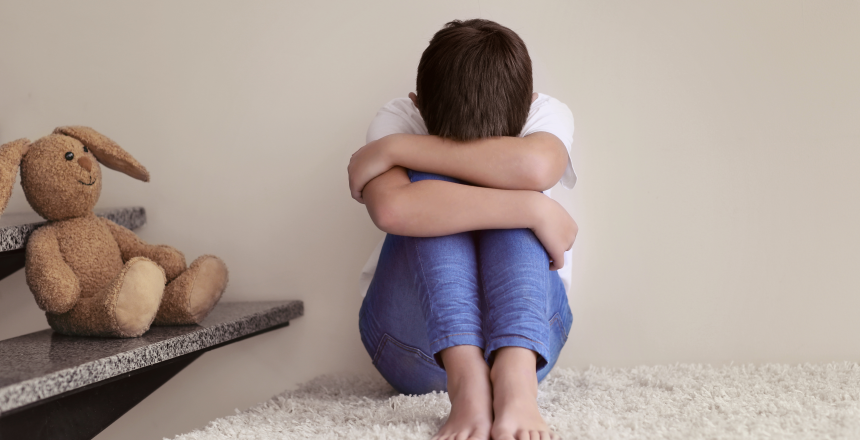As an adult, set the right questions - and above all, without criticising the children for their opinion. condemn. Find out here what questions to ask and how you can proceed! Let's not leave our children alone with this flood of images - be a cyberchecker!
Do not leave the child alone!
The current situation in several areas of the world means that our children are relatively quick to form an opinion on certain conflicts or issues in the world. These positions, some of which are vehemently held, are the result of a wide variety of factors - social media also plays a major role in this as a Opinion-forming tool. They can also trigger fear, anger or sadness and Lasting consequences for mental health have. It is important that we adults Catching children's insecurities and the children with the Weltschmerz not alone let. Our children are confronted with adult content that they are often unable to fully understand and process.
What is my child or pupil currently looking at on TikTok and Co.?
Whether it's just a few videos or lots of them: Every child with internet access and various apps comes into contact with disturbing war videoscurrently mainly from Israel and Palestine. Realise that the platforms are full of anti-Semitic and anti-Muslim contributions are. Also circulating disturbing videos from murdered and injured People. People take this as an opportunity to create brutal videos and posts and, above all, to win over children to radical views.
What do videos from dead people and War wounded with my Child?
Children can use the Complexity of such pictures and videos not process. Sometimes it feels to them as if these images are happening in their neighbourhood. They make a connection to their own lives. So a Feeling of threat and, as a result, fear, but also hatred or anger can arise and influence a child's psyche. The greatest danger is that the Algorithm ensures that the children are only confronted with such incriminating videos. This can lead to the so-called Doomscrolling lead.
What is Doomscolling and what does that do to children?
Children only see such videos, pictures and "bad news". This conveys the feeling that everything in the world and in life is only negative. This can have a negative impact on a child's mental health and promote emotions such as anger, sadness and aggression.
Which Questions I can give my Child or my Pupils place?
Important: Make sure you Time and prejudge Don't touch the child. Also make sure that they themselves No fear-inducing rhetoric use. Enter Hope!
- What are you currently seeing particularly often on Instagram, TikTok and co.
- What questions do you have?
- How do you feel when you see this content?
- Do you have an opinion on the content you see? If so, why and which one?
- How does it feel to see the suffering of the people in the videos?
- Can I show uncertainty or fear and give a factual overview, even though the children's opinions seem clear?
It is generally advisable for adults to avoid situations fact-based and factual describe. Uncertainties, sadness or helplessness can and should be shown.
The Language the Adults: It is particularly Important!
Pay attention to a calm voice and a pleasant space for the conversation. Make sure you have enough Time in!
Generalisations and the collectivisation of people should be avoided.
It is particularly important to remember the empathic sympathy for the suffering of individuals and civilians. Children need much longer timeto Assign concepts and to analyse the situation sort.
Which Tips I can give a child for Social Media give?
The important thing is to always justify.
- Do not share videos of people who have been injured or killed - out of respect for the victims and bereaved. It also ensures that you are not spreading fake news.
- Report brutal and disturbing videos so that they cannot be distributed further.
- Ask adults you trust if you are unsure of information.
- You don't have to have an opinion on it or express it in front of other people.
- Do not comment on war videos or videos of injured or killed people.
- Try to consciously watch other videos that make you feel good, because there are other beautiful things on social media and in the world.
What else can I do as a parent or teacher?
- Pay attention to media time-out: Make sure that the children do other activities and spend time without their mobile phones.
- At such times, regularly create Space for such conversations.
- Fears or Feelings creatively expressed in the form of works of art or peace posters.
- On Sources and remind people that social media is full of Fake news is - especially in times like these!
- Options for assistance research or your own Projects to support people in disasters.
What age-appropriate media is available?
https://kinder.wdr.de/tv/neuneinhalb/nachrichten/index.html
https://www.hanisauland.de/index.html
https://www.zdf.de/kinder/logo
https://www.blinde-kuh.de/index.html
On this platform you can Children's questions about peace and war place and receive child-orientated answers on it:

